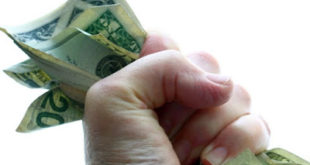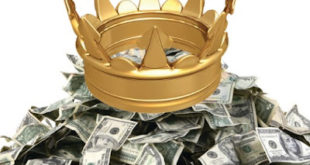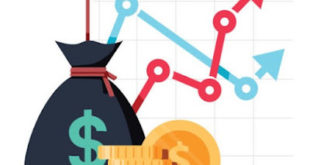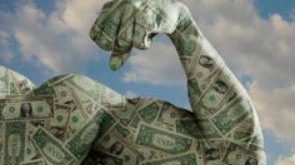Overview: The market continues to monitor developments in Israel and the Middle East. The economic calendar is light today and the market is showing a strong appetite for risk. Except for China and South Korea, large bourses in the Asia Pacific rallied. Japan's indices jumped more than 2% and Australia by 1% to lead the region. Europe's Stoxx 600 is up 1.5% near midday, which, if sustained would be the largest in nearly a month. US index futures are firmer. After...
Read More »War in Israel Spurs Flight to Dollars, Yen and Gold, While Driving up the Price of Oil
Overview: There are three main developments. First, the market is digesting the implication of the US employment data, where the optics were strong (336k increase in nonfarm payrolls compared with 170k median forecast in Bloomberg and Dow Jones surveys) but some details were disappointing (like the third consecutive decline in full-time posts, seasonally adjusted). Second, Chinese mainland market re-opened after a six-day holiday). Chinese stocks slipped and...
Read More »Week Ahead: King Dollar Stalls
The US reports September CPI on October 12 and the first decline in three months in the year-over-year rate is expected. However, the price action itself may overshadow not only the CPI but other high-frequency data in the week ahead. US grew more than twice the number of jobs in September as economists expected. US interest rates and the dollar jumped initially, and stocks were dumped. And then they reversed. Many narratives will be spun to explain the price...
Read More »US Employment Data to Determine Whether the Greenback’s Rally since mid-July is Over…Maybe
Overview: One key issue for market participants is if the dollar's pullback is the beginning of something important or is largely position adjusting ahead of today's US jobs report. We suspect that the dollar's rally that began in mid-July is over, though a strong employment report that boosts the chances of a Fed hike before year-end could quickly demonstrate the folly of making claims ahead of what is still one of the most important reports in the monthly cycle of...
Read More »Markets Continue to Struggle
Overview: The markets remain unsettled. Follow-through dollar selling has been limited today after yesterday's pullback. Narrow ranges are prevailing, but the Norwegian krone and Canadian dollar, the weakest G10 currencies in recent days, are heavier again today. Although it seems that the BOJ did not intervene earlier this week, but the dollar bulls has been chastened just the same and the greenback is holdings below yesterday's high (~JPY149.30). Higher than...
Read More »Strategic Ambiguity Leaves Intervention Question Unanswered, but US Dollar has Steadied
Overview: Dramatic yen price action around the JOLTS report yesterday after the dollar pierced the JPY150 level spurred speculation of BOJ intervention. Although there has been no confirmation, the strategic ambiguity is helping steady the yen and the dollar more broadly today, even though US yields remain firm. Final PMI readings were a better than the flash estimates and this may also be facilitating the consolidative tone. Most promising, from a technical point...
Read More »Mises Wire
But once a commodity is established as a money on the market, no more money at all is needed. —Murray Rothbard, Taking Money Back The Fed’s distinguishing characteristic is its grant of privilege to buy assets with money it doesn’t have. No other person or institution can legally do this; those that tried would be indicted for counterfeiting. At the very least you might think this would raise eyebrows, but it doesn’t except in fringe quarters. It is simply part of...
Read More »Zuger Kantonalbank Launches Crypto Asset Trading and Storage
The first cantonal bank to offer clients straightforward trading and secure storage of the most common cryptocurrencies. The offering complements its existing investment services and is delivered within a fully regulated banking environment. As of today, Zuger Kantonalbank clients are able to invest in cryptocurrencies such as Bitcoin, Ethereum, XRP, Litecoin, Polygon and Uniswap. The digital assets can be bought, traded and stored simply and conveniently via the...
Read More »Dollar Stabilizes After Extending Gains
Overview: The dollar's gains were initially extended before a consolidative tone emerged. The euro has been sold to $1.0460 and has returned to almost $1.05. Sterling fell to nearly $1.2060 and has recovered though has stopped short of $1.2100. The dollar edged closed to JPY150 but stalled near JPY149.95 and has held above JPY149.65. The Australian dollar near $0.6300 and the greenback rose to CAD1.3725. Benchmark 10-year yields are firm, though a well-received...
Read More »Libertäre Partei versiegelt überflüssigen Verwaltungsstaat
Um auf den ausufernden und ständig wachsenden Staatsapparat aufmerksam zu machen, haben Mitglieder der Libertären Partei am 2.10. verschiedene Gebäude der Verwaltung und von Staatsbetrieben mit ihrem «Freiheitlichen Siegel» versiegelt. Die Libertäre Partei (LP) setzt sich für einen radikalen Staatsabbau ein. Dies wird klar, wenn man den Text des Siegels liest: «Diese Institution würde bei einem Wahlsieg der libertären Partei geschlossen. Wenn Sie dieses Siegel brechen, machen Sie sich...
Read More » Swiss Economicblogs.org
Swiss Economicblogs.org








